Modal verbs have to/must always confuse English learners. They have difficulty recognizing the functions of these words. The bottom line is that they are indeed quite similar in use, but still have a different shade. Moreover, have to / must, the difference between which is so difficult for students to distinguish, have different specifics of sentence formation in tenses. We will talk about all these nuances today in our article.
What is a modal verb?

First of all, let's understand what a modal verb is. Hearing the word "verb", many take it literally, that is, the commission of some action. This is an erroneous perception. The fact is that modal verbs do not express any action. They express the attitude of the speaking person to a certain process. So, you can say: "I play the piano." Here the action is performed directly, and the simple semantic verb "play" is involved. And you can say:
- I can play the piano.
- I have to play the piano.
- I have to play the piano.
- I should play the piano.
- I can't play onpiano.
In this case, with the same action, different modal verbs express a different attitude towards it: to be able, to ought, to advise, to reproach, to forbid - all these are functions of modal verbs. Can, should, must, have to, need are used for this purpose. The difference between them is just in a different way. Depending on what you want to express, you need to take the appropriate modal expression.
What do verbs have in common?
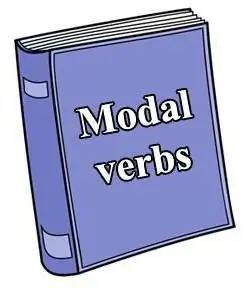
Why did we decide to take the verbs have to/must ? The fact is that they are very similar in their functions. Both are used in the sense of "should". The situation becomes especially confusing when we need to use these verbs in the past or future tense. The fact is that one of them does not have forms in these tenses, and the verb must be replaced so that the information is transmitted reliably and understandably for the person speaking to you in English.
Have to/must: difference
If we talk about the differences between these modal verbs, then there will be many more points. In addition to the main, semantic, there is also a difference in the presence of temporary forms, as well as a different approach to the formation of different types of sentences. Here the form of verbs is the basis. One of them is strong and the other is weak. Hence the difference in the formation of interrogative and negative sentences. Both verbs have to, must can be used in similar structures, but each of them behaves differently. Moreover, recently must has been used less and less due to the fact that people have become moreuse the meaning of "should" as an influence from outside. And the meaning of the word as an awareness of a sense of duty on the part of the speaker is used much less frequently.
Application feature have to
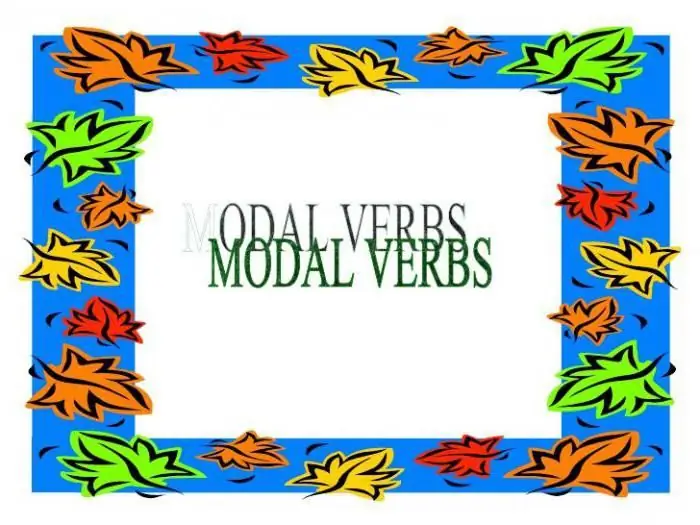
Must is a verb that is easier to learn. What can not be said about his opponent. Let's look into all the intricacies of using have to.
In the modal function, this verb has weak properties. This is done so that people do not confuse the use of it as a semantic strong "to have" in other variants. What does it mean? This means that when forming interrogative sentences, as well as negations, an auxiliary verb is used. For example:
- I have to get up early. I have to get up early.
- Do you have to get up early? Do you have to get up early?
- I do not have to get up early. I don't need to get up early.
As you can see, this verb behaves in sentences differently than we are used to observing the behavior of the strong “to have”. (Have you a dog? I have not any sugar.)
Here it is worth remembering that, like the semantic verb known to us, have has two forms that are used depending on the person and number of the subject in the sentence.
- I, you, we, they have to get up early.
- He, she, it has to get up early.
The next feature of this verb is the presence of tense forms. So, in the past tense, the had to form is used, and in the future tense, will have to.
- I had to get up early. I wasforced to get up early.
- I will have to get up early. I will have to get up early.
Please note that in all proposals, the emphasis is not just on obligation, but on compulsion, that is, on the influence of some factors, in addition to the desire of a person. At the same time, both in the past and in the future, the verb also uses help to form questions and denials.
- Did you have to get up early? Did you have to get up early?
- I didn't have to get up early. I didn't need to get up early.
- Will you have to get up early? Will you be forced to get up early?
- I won't have to get up so early. There will be no need for me to get up so early.
Using feature must
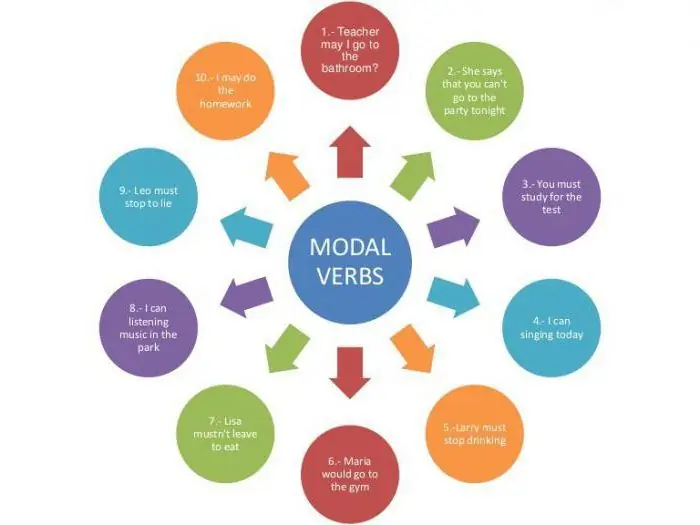
Let's move on to the second representative of this shade of modality. With the verb must, the situation is somewhat simpler. First, it has a rather simple meaning - “should”. Everyone understands it exactly as it should be. A person, by virtue of his own conviction, must perform some action. In the presence of a negative particle, a ban on the commission of some process is expressed.
- I must go to this party. I have to go to this party. (I understand that I must do this).
- They must buy the house. They must buy a house. (They know they need it.)
- He must not do it. He shouldn't be doing this.
The peculiarity of this verb is that, like most modal words, it is strong. This means that when constructing questions andhe doesn't need anyone's help.
- I must not go to this party. I shouldn't go to this party.
- Must you buy the house? Should you buy a house?
Another distinguishing characteristic of this word is that it has only one form for all persons, numbers and tenses. If it becomes necessary to use such an expression in the past or future tense, then the well-known have to comes to the rescue with its own set of temporary forms.
I had to go to this party. I had to go to this party
In addition to this meaning, must is also used in the meaning of "should be" when expressing doubt with a hint of certainty, as opposed to uncertain may.
- He must have fallen ill. He must be sick.
- He may have fallen ill. He must have been ill.
And the last nuance is the categorical absence of a particle to after the verb.
Difficulties in use
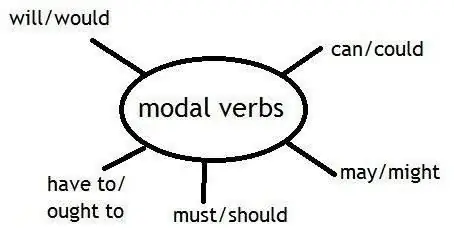
Difficulties in application are not only with the verbs must and have to. Grammar is a rather complicated science, and requires care, patience and perseverance. Only under such conditions will you obey all the rules and their exceptions. The biggest difficulty lies not even in the choice of the verb itself, but in the application of its desired form. A lot of difficulties are caused by the use of auxiliary verbs do, does, did. Often students try to make a weak verb strong and vice versa. Only practice and constant training will make the use of these words onautomatic level.
Pivot table
Now, summing up, I want to collect everything in one table for additional clarity of the difference and common characteristics of these two words. So, verbs must and have to, usage rule:
| Must | Have to |
| must, assumption, prohibition | must, forced by circumstances |
| strong | weak |
| does not use auxiliary verbs | uses the verbs do, does, did to form questions and negatives |
| 1 obverse: must | 2 facial forms: have to, has to |
| 1 temporary form: must | 3 temporary forms: have to, had to, will have to |
| lack of to | availability to |
Workout Exercises
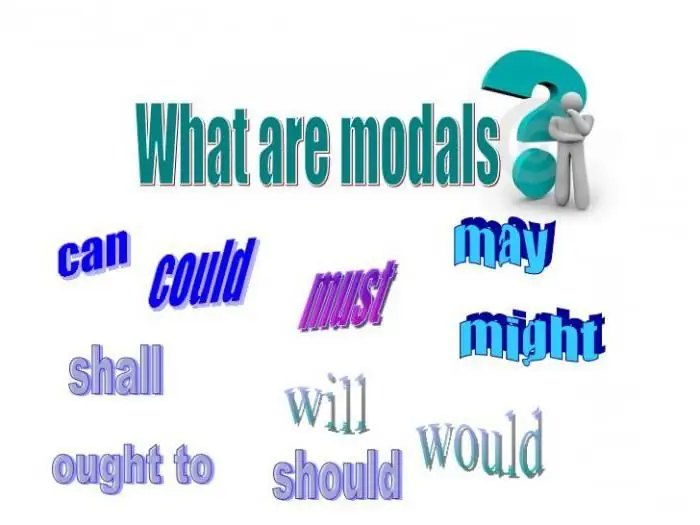
The best training to consolidate the rules for using the verbs have to/must will be sentences for translation from Russian into English. For example:
- We must memorize this verse for tomorrow.
- They had to leave.
- She will have to call me at 5.
- He has to go to this lyceum.
The ability to use the necessary forms of substitution tasks is also very well trained. For example:
- She … stay here for three days. (have to)
- I … train a lot. (must)
- … you … open the door? (have to)
Another good example of training is not just translating sentences, but using them in mini-dialogues. This immerses the student in a real environment, and he understands that it is very important to express his thoughts correctly in order to be understood in the way he needs. For example:
- Hello. Where are you going?
- Hello. I have to go shopping.
- Why?
- Our stove broke, and we have to buy ready-made food in the store.
This is not the whole list of possible exercises, but the main thing here is to start. And then practice and work will lead you to success, and you will easily use any modal verb.






